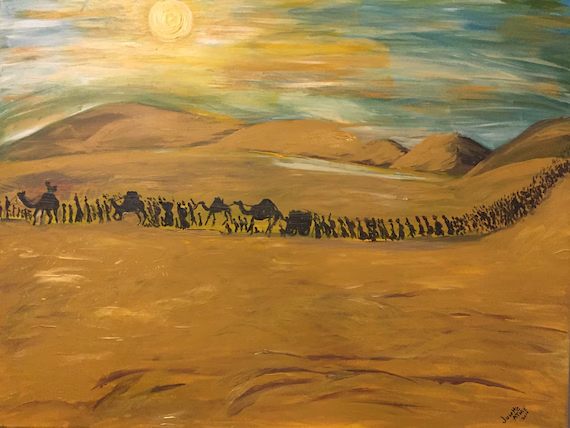Wind and Fire
The last time his disciples saw Jesus was when they were walking on the Mount of Olives outside Jerusalem.
Jesus had come to say goodbye. It was forty days since he had died and come alive again.
'You must go back to Jerusalem and wait there, Jesus told them.
'John baptized people with water, but soon God will baptize you with the Holy Spirit. He will give you the courage and power to speak bravely to the people in Jerusalem, in Judea and Samaria, and even in the whole world.
Tell them the good news; that everyone who trusts in me, and truly regrets the wrongs they have done, will be forgiven. I will give each one of them a new life. And remember, I shall always be with you.
When he had finished speaking, a cloud hid Jesus, and he was taken up into Heaven. As the disciples watched, they saw two men appear, dressed in white.
'You men of Galilee, why are you looking up at Heaven?
Jesus has gone to be with God but, one day, he will come back, they said.
The disciples walked back to Jerusalem, feeling very happy, and waited as Jesus had told them.
On the day of the Jewish festival of Pentecost, which celebrated the end of the wheat harvest.
Fifty days after the Feast of the Passover, the disciples were in a house in the city.
Many other friends of Jesus, men and women, as well as Mary, his mother, were also there.
Suddenly, they heard a noise like a great rushing wind blowing through the room, but the air was quite still. Then fiery flames flickered around their heads, but didn't burn them.
They knew this was a sign that God had sent his power to them, just as Jesus had promised them. Now they could speak bravely to all the people.
The disciples rushed out into the streets of Jerusalem.
The city was crowded with Jews who had come from as far away places as Egypt. North Africa. Persia. Crete and Arabia for the Feast of Pentecost.
They were amazed when the disciples spoke to them in their own languages, languages the disciples had never learned or spoken before.
The disciples talked to them about God, and about Jesus and all the wonderful things he had done.
They told the people that they should be baptized in the name of Jesus.
They should regret the wrongs they had done and believe that Jesus had died for them, and they would be forgiven.
They should begin new lives, knowing that God would always help them and be with them.










Comments
Post a Comment